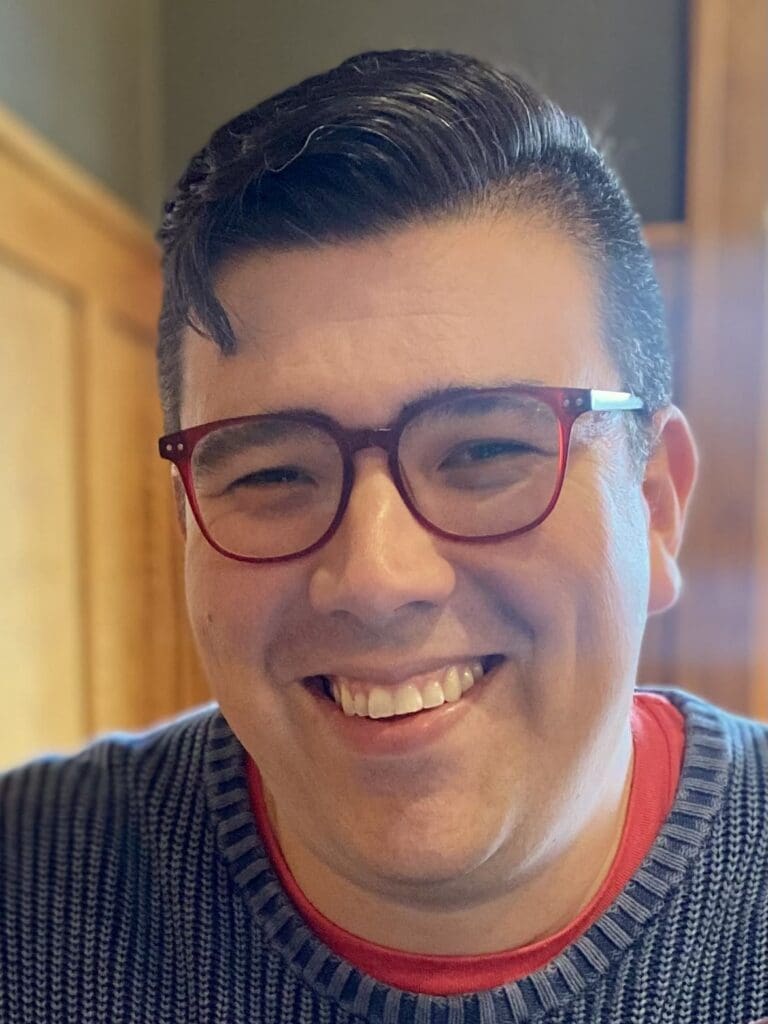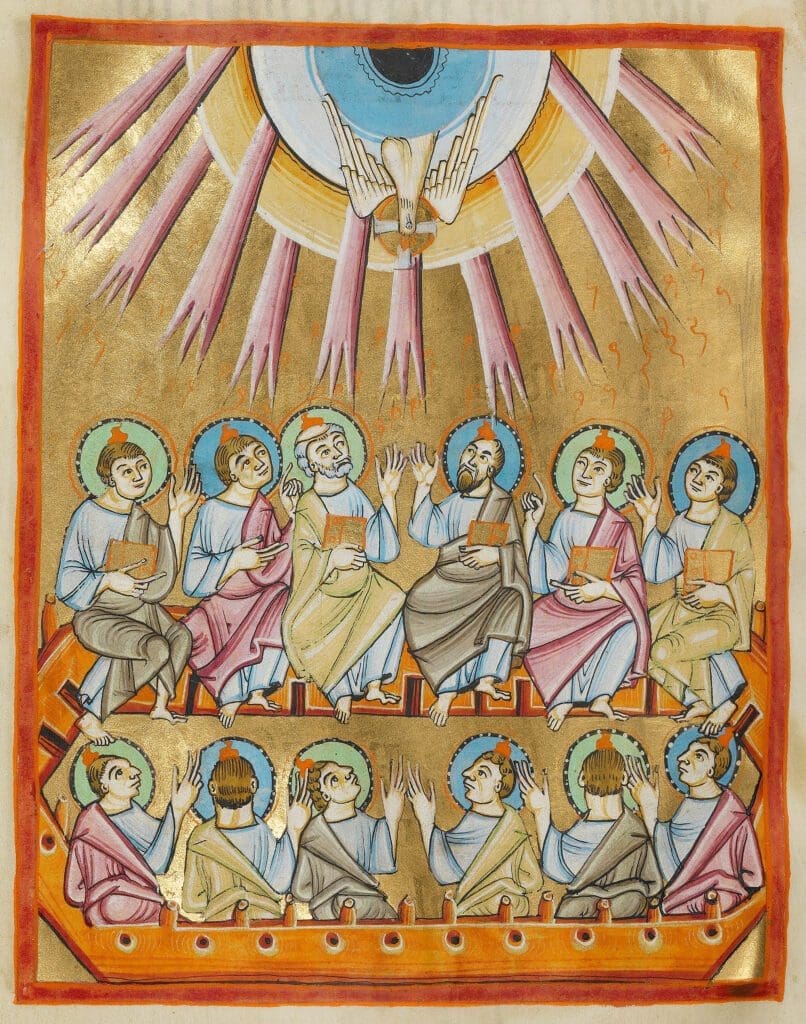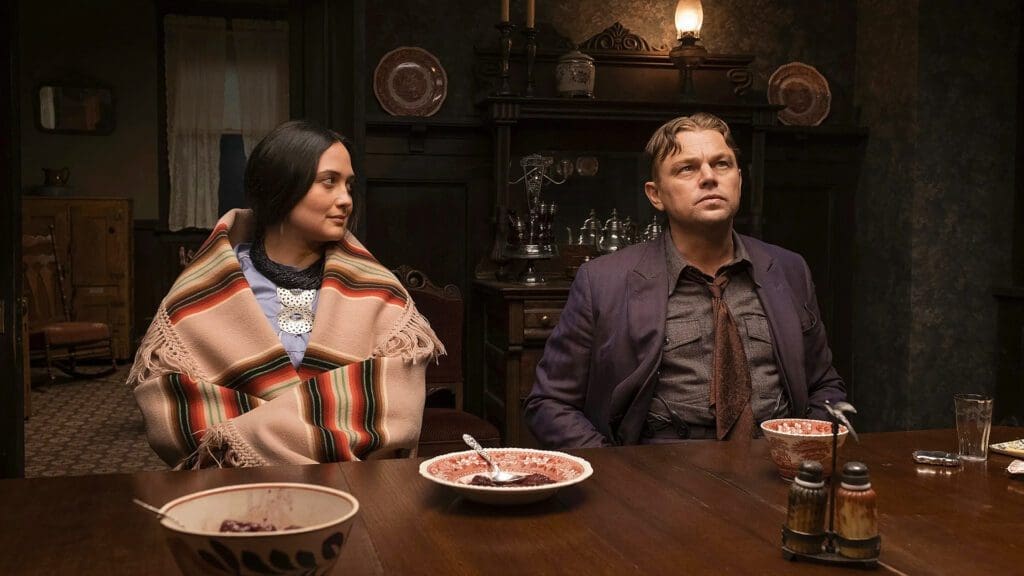T
There is never a time I have not borne Native American ancestry. But have I always been Native American? Something about the distinction seems to demand attention in order to tell the truth. My mother is half Native American, and my father is of Irish and Scandinavian descent. My mother grew up on a reservation and met my father after fleeing to California to escape it. I grew up in southern Wisconsin, always aware of the heritage I bore through her; but this awareness remained always in the background of my mind, an unobtrusive fact interesting for first-day-of-class introductions but little else. My formation was much the same as that of most Americans, focused on a generic civic duty to my country and an accompanying generic freedom, founded on American exceptionalism and applied through individual autonomy and a free market of commodified desires. No one explicitly instructed me to downplay the Native American part of my ancestry, but I did it nevertheless.
I no longer can straightforwardly answer the question of whether I have always been Native American. Questions of identity are never straightforward. If being Native American carries more than one sense, if being and belonging are not equivalent, then many assumptions—whether my own or of those around me—may be invalid.
I am freshly thinking about this constellation of questions because the different ways I have answered them in my life have failed me on the plane of relating justly to these people and to their others, all of whom are my people. What I need, what all of us—Christians, Americans, modern subjects—need, is a way that will better attune us to reality. And I have found that dismissing the question as irrelevant and maximizing the claims of identity hinder such an attunement and even quench the Spirit.
I tacitly learned the inferiority of Indian ways through the routine use of words such as “primitive,” through the focus in history classes on the development of contemporary technology and on the valorizing of colonial and settler experience. History was an inexorable force sweeping our planet toward the arrival of freedom and rationality.
What I need, what all of us—Christians, Americans, modern subjects—need, is a way that will better attune us to reality. And I have found that dismissing the question as irrelevant and maximizing the claims of identity hinder such an attunement and even quench the Spirit.
Teachers and textbooks acknowledged atrocities against Indians, but often with a sense that it could not have been otherwise. Indian practices and outlooks were hopelessly against the grain of modernity. Time, it was silently conveyed, was always against them. It just took a while for the epoch’s closing door to shut them out of what had always been their temporary homes.
I found it easier to believe this account because my people had never produced a Bach or a Hegel or a Cantor. This seemingly brute fact reinforced a perception that native culture was inferior.
But it only seemed to be a brute fact. Bach’s fame discloses little about the quality of the Ojibwa musical imagination and more about the context of production and the systems of incentive and preservation in eighteenth-century Europe. Conditions of possibility for enduring fame held true in Europe that did not in pre-conquest America, and this is reflective of different values and priorities much more than it is of ability.
Nevertheless, I only learned all this much later. As a kid in school growing up, I simply accepted the reality with which I was presented. As a young adult, curious and eager to understand references in books and shows, I discovered thinkers who challenged many other “brute facts” to which I was accustomed. Ludwig Wittgenstein was one of the first. Others such as Hegel, Adorno, and Lacan soon followed, complicating the straightforward understanding of the world in which I had dwelt, and teaching me to subject the seemingly obvious to critical scrutiny. Later, N.T. Wright and eventually Karl Barth would show me how to utilize some of these concepts for the sake of communicating the gospel. It was thrilling to see just how radical, how divergent from the status quo Christian faith truly was. My ability to articulate the gospel and diagnose the world’s ills grew with these theoretical tools, and I felt more than capable of dismantling the foundationalism underwriting the plausibility structures of American consumerist capitalism.
But that confidence did not survive an encounter that tested the adequacy of critical theory.
In the fall of 2020, my wife and I returned to Minneapolis for our anniversary. We walked along Franklin Avenue, not far from our old apartment and near the Native American housing project, retreading familiar routes and reminiscing.
Passing the American Indian Center, we noticed signs imploring Indians to seek help for drug addictions through the programs offered at the facility. I have known for most of my life the plague of addiction that devastates the people of our reservation and those trapped within the reservation system more broadly. But these troubles were a banal fact, mediated to me through my mother and other family members’ recollections of life on the rez—dark possibilities I shunned for myself but had little familiarity with addressing. Just around the corner from the center, however, at the bottom of a stairwell, two young Indians, a man and a woman, sat on a dirty mattress preparing syringes for intravenous injection.
I felt an impulse to do something. But when they looked at me, I froze, unable to decide what I should do. I wanted desperately to intervene, to beg them to stop what they were planning to do and—what? What would I tell them to do instead? This gap in my imagined admonition wrenched me toward a fact I had not considered: that though I am Indian, though I am an enrolled member of my tribe, I do not look like many of my kin owing to traits I inherited from my father. Would they simply see another white man telling them to become like him?
What I wanted was to speak to them in Ojibwe, to find a common Ojibwe way of saying, “This is not the way.” But I knew no such idiom. I was an impostor, and I was out of my depth.
And so I said nothing. I stood there for several moments, aghast and perplexed and angry. Angry at what was taking place not far from me, angry at the diabolical power that gripped my people, and angry at myself for my own powerlessness to intervene.
I was painfully aware—I would now say viciously aware—that speaking held the possibility of conveying the superiority of whiteness or of majority culture. And that is part of the problem. Our intentions are never wholly conscious or transparent to us. We mean more than we say or do, and much of it can be understood only after the fact. Our words and gestures and dress are not just our own; we always communicate more than we intend to. Ideology speaks through us.
My desire to speak to this couple, to help them, insofar as I was conscious of it, was good. My fear that whatever I could say would be received in such a way, however, was not. I was swamped by theory. It overwhelmed the impulse I felt to interrupt the death that I was witnessing overtake my people. My fear of communicating something I didn’t want to communicate was stronger, I retrospectively recognize, than my desire to point them toward something better.
And so I left that couple there in the stairwell destroying themselves. My life has continued, but they remain frozen in my introspection, witnesses to my failure to act that day. The memory afflicts me with shame whenever I consider it. I find no satisfaction, no social merit points, in feeling guilty. What I wanted was a way to overcome my passivity and the ugly ditch between recognition and action.
I am uncomfortable relaying these reflections in the first person. While I have come to recognize that “views from nowhere” lead nowhere, I still fear compromising a claim with the inclusion of inconsequential details about me. Despite accepting the inescapability and the importance of subjectivity, I retain a remnant of the conditioning that cringes when it hears “I.” And yet the authors from whom I learned the story of objectivity’s supposed superiority frequently speak in first person in their texts. Even they recognized that truth must be enunciated by someone.
Furthermore, as New Testament scholar Richard Hays has observed, theological discourse is most properly “self-involving discourse.” “A strictly third-person form of discourse,” he writes, “lends itself to the mode of pure description, in which the author may stand apart, uninvolved in the text’s world.” But to be addressed and claimed by the Word of God demands a response. To recognize that address and respond cannot but provoke “I” statements.
Why does any of this matter? Because telling the truth means recognizing the place of the subject within any account, but at the very same time not collapsing that account into the uninterpreted solipsism of experience. Which means that being Native American does not confer an intrinsic veracity on my testimony. There are Indians, after all, who have accepted bribes or signed off on deals that were against the interests of the tribe, that violated the values we once held dear. A higher blood quantum does not ensure a corresponding nobility. But it can provide special insight insofar as it offers access to truth someone else might not have. It isn’t necessary to grow up on the rez to recognize its problems, though living there will no doubt deepen one’s awareness of them. Even so, one who is situated within a problem can nevertheless be wrong about its origins, conditions, and possible solutions. A reflexive deference to “identity” is as likely to deflect the truth as it is to uncover it and enable us to act on it.
Identity is always distributed across networks of relation; whoever we are, we are not simply on our own. Who I am is the shape of my commitments and obligations to this way of viewing the world and each other and to this way of doing things. It’s difficult to generalize identity because the traits we cite, which are then shared by others, are being made to extend beyond the set of concrete relations we find ourselves in. If one does not share the commitments and obligations of a particular group of people, nothing like identity is shared either. If there is anything substantive to identity, it has more to do with the sense of vocation around which these commitments and obligations orbit than it has to do with blood.
Identity is always distributed across networks of relation; whoever we are, we are not simply on our own.
And so while I bear Native American genetic ties, this does not mean that I automatically belong vocationally. Then again, sadly, that appears to be true of many contemporary Indians. Numerous Indians live their lives with primary reference to survival, seeking solace in TV and alcohol and drugs. Contrary to popular (and profitable: ask Robin DiAngelo) conceptions, this demolition of tradition is due not so much to whiteness as it is to the disintegrating force of capitalism. It is capital that has severed these people from and bulldozed over the ways of life that bound them to place and to its creatures. The malformation we all receive under it and accept as “the way things are” erases the particularities that make for such a community of vocation, substituting new priorities and ambitions and manufacturing discontent while promising fulfillment through mass-produced goods and symbols. The problem at work here, in other words, is camouflaged when it is understood more in terms of race than in terms of capital’s formation of subjects and their desires—a formation I share with millions of many varied ethnicities, including the many that have been homogenized as “whites.”
I am not, then, a fit witness to the plight of my people simply because of my genetic belonging. Looking like an Indian, speaking Ojibwe, may have aided communication but would not have solved the problem of poverty and addiction that confronted me in that stairwell. A middle-class white person could see that couple’s plight and advocate for the justice due them, but only if the ideology that would discredit their (and my) testimony—the ideology that kept me frozen to the sidewalk that day in Minneapolis—was confronted and overcome. My formation, and the formation of millions like me, renders problems invisible or as normal, even good, that should scream for change. There are ways of seeing the world that make it difficult to appreciate, much less respond to, reality.
Truth, I am insisting, is not located exclusively in the objective realm of things known. Many things are that go unnoticed, and unnoticed they never pass into the realm of public knowledge, never become matters of public concern. A stringent emphasis on objectivity ignores how moral subjects must be formed in order to rightly recognize what is real. It pretends that methodologies and procedures possess an agency of their own, as when someone claims, “Science says that . . .”—as if these things are subjects with wills of their own! Moreover, it affords us a way to deny our responsibility by shuttling it off to science or history or the market. But “the market” didn’t force you to raise the price of rent: you did that. “Civilization” didn’t demand the extermination of Native Americans: greed and hatred motivated that.
I had learned to recognize that I—my bearing, my appearance, my language—play a part in recognizing and transmitting truth. But the acid of theory that exposed the faulty assumptions and powered interests of the everyday splashed back onto me, eating away at my ability to act. Theory formed me to see through propaganda and obfuscation, but it did not enable me to see anything beyond it after the lies had been rendered transparent.
Or to serve it, unfortunately. For if everything I do is encumbered with the weight of ideology I do not intend to serve, where does that leave me? I am locked into inaction simply hoping I don’t make things worse. My conscious volition could not guarantee a straight path, clear of colonial clutter, and my appearance and my language, I feared, would only alienate and objectify these two people. I understood I could not guarantee perfect motives to what I did. Further, I could not count on a pure transmission of what I longed to communicate. What good was my subjectivity there, then?
The beautiful soul laments the world’s wrongs but is uncommitted. It is unwilling to act in accordance with the needs of the moment and instead despairs—very publicly—that nothing can be done.
I fear all this shows me to be what Hegel described in Phenomenology of Spirit as a “beautiful soul.” Hegel exploits what sounds like a commendation in order to rebuke the thinking that is preoccupied with its own purity and therefore only complains of how corrupt the world is. The beautiful soul laments the world’s wrongs but is uncommitted. It is unwilling to act in accordance with the needs of the moment and instead despairs—very publicly—that nothing can be done.
The beautiful soul is concerned most with avoiding the risk of action, as the work done on others’ behalf always goes wrong in some way. How can it be otherwise when the only agents that could carry out such acts are not only finite but sinners? There is no wholly guiltless act of compassion; there are only ever compromised efforts to concretely care. The beautiful soul wants most to keep its hands clean, and wants others to see how clean they are. “It lives in dread,” Hegel writes, “of besmirching the splendor of its inner being by action and an existence, and, in order to preserve the purity of its heart, it flees from contact with the actual world, and persists in its self-willed impotence to renounce itself.”
I allowed myself to succumb to such thinking. And in so doing I failed to inhabit the actual world and failed to love my people.
Having spent years reliving and examining this incident, I recognize now the fatalism of those types of theory that claim prejudice of whatever sort can never be overcome. It’s not that prejudice has been decisively defeated or exorcised and banished by progressive fiat into a less enlightened past. Prejudice is fairly invincible wherever there is insufficient love and insufficient self-examination. My fear of prejudice succumbed to its shadow side and permitted the status quo to steamroll on its way.
It is possible, likely even, that, however good my intentions, nothing I could have done would have changed anything that day in Minneapolis. But I’ll never know. It is also possible that had I risked acting, had I been attentive to the Spirit’s promptings, something could have happened. There is no guarantee either way because there is no assured method that produces the results we desire.
This truth about method is the pressure point at which my critical inhibitions cracked open. I behaved as though I knew that nothing I could say could convey goodwill and trustworthiness or could provoke even a moment of considering how things could be otherwise. And in so doing, I realize, I did not take into account God’s ability to interject the incalculable, to summon into any setting that which is not possible on its own terms and with its own resources.
What is certain is that my fear of saying or doing the wrong thing kept me from saying or doing anything at all. The insights of critical theory that had exposed the machinery of bourgeois knowing I had assumed for so long, as useful as they were in disclosing the shortcomings of the colonial inheritance, manifestly did not aid my desire to care for these two image-bearers. All that I did was question the means available to me for accomplishing my aim of helping them.
I do not need to wait for the total, exhaustive cleansing of my heart to act in accordance with the love of Christ when his Spirit prompts me.
It is a wonderful and cruciform irony that Georg Wilhelm Friedrich Hegel, the seminarian father of critical theory, should both diagnose my error and build me up in its aftermath. Hegel brought home to me afresh the biblical insight that critical awareness without the Spirit is a dead end, drowned in what it “knows.” I do not need to wait for the total, exhaustive cleansing of my heart to act in accordance with the love of Christ when his Spirit prompts me. Hegel’s great-great-grandchildren expose error and presumption and condemn them, but their intellectual forebear both afflicts and comforts, as any good preacher must. Such theory has been a necessary corrective to the philosophies of mastery and of the ways of knowing that ignore particularity, power, and the subject’s implication in the world’s wrongs. But it in turn has too often absolutized critique such that this corrective metastasizes into the totality of truth, mirroring that which it rightly critiques. Such theory substitutes a frozen certainty of its own and undercuts the maxim “Whoever knows the right thing to do and fails to do it, for him it is sin” (James 4:17).
This failure has been the occasion of a renewed sense in me of the gospel’s ability to address, critique, and contribute to all settings. Moreover, I recognize how knowledge’s usefulness reaches only as far as love is willing to go. There is no prerequisite blood quantum I must have in order to speak to Native Americans. The extent to which I belong to this people is not the ultimate arbiter. The only qualification necessary is love, and though I had it in this instance, I doubted its sufficiency, which in turn diminished it. I long for the opportunity to do it right, to say, “There is something better for you, brethren,” and to commend the love of God in Jesus Christ. My prayer is that I will be able to do so yet and share in a belonging that begins in genetics and ends in the kingdom of God, where self-deception and critical scrutiny will be things of the past.






